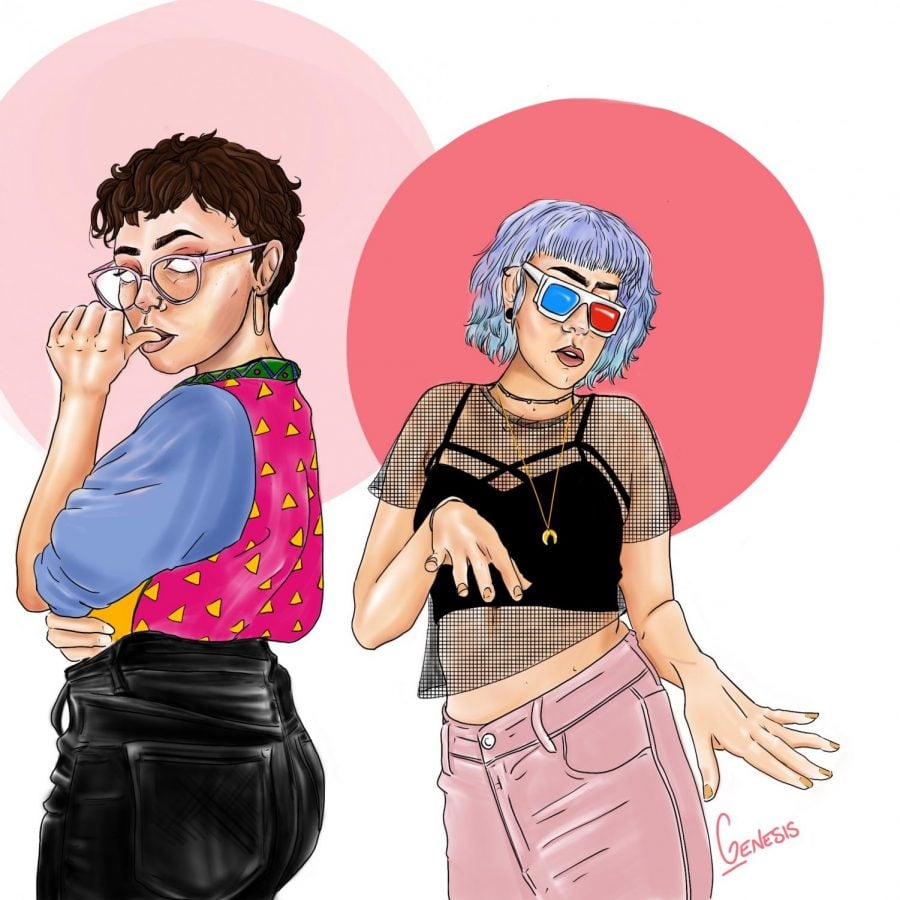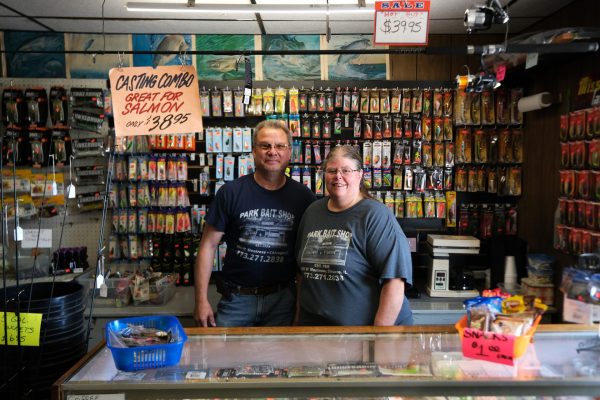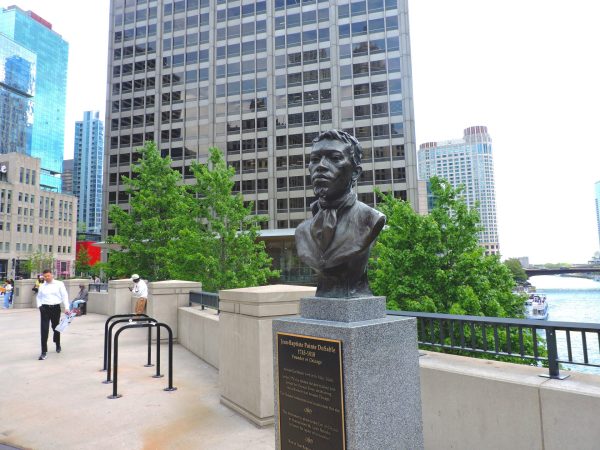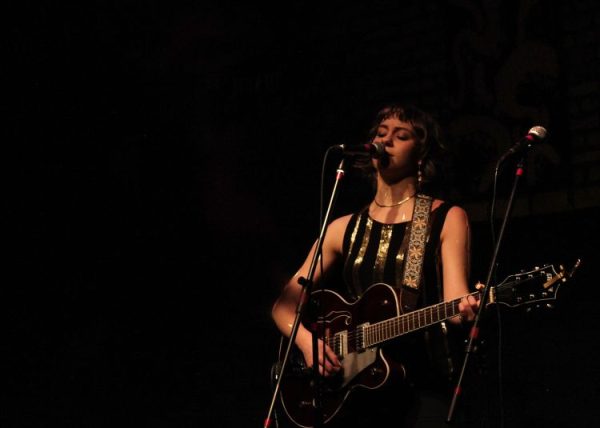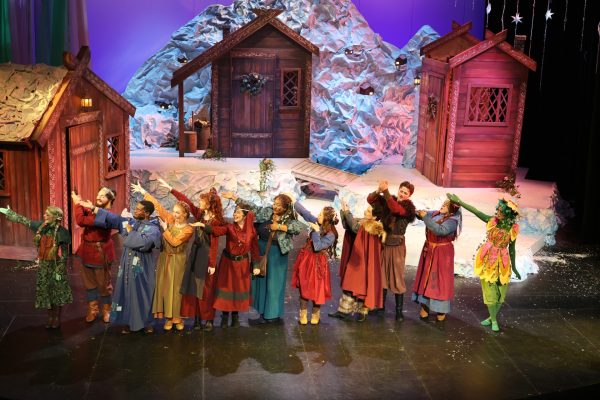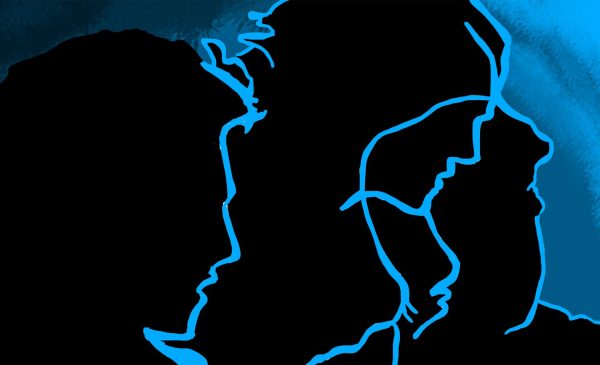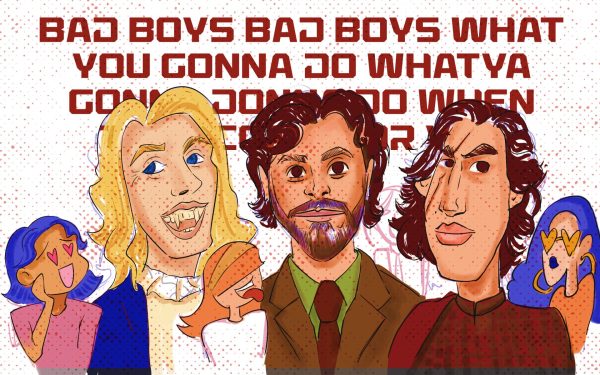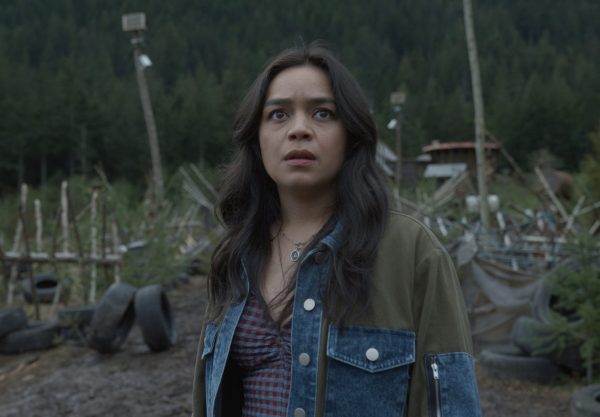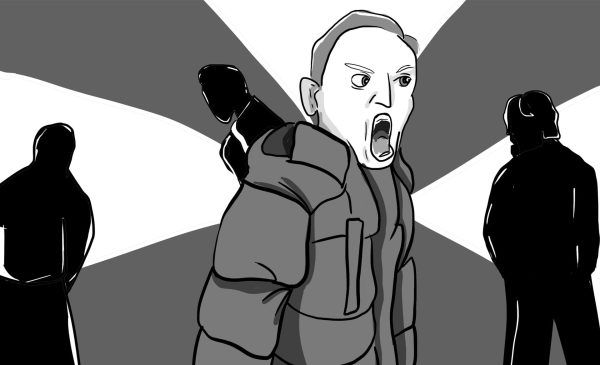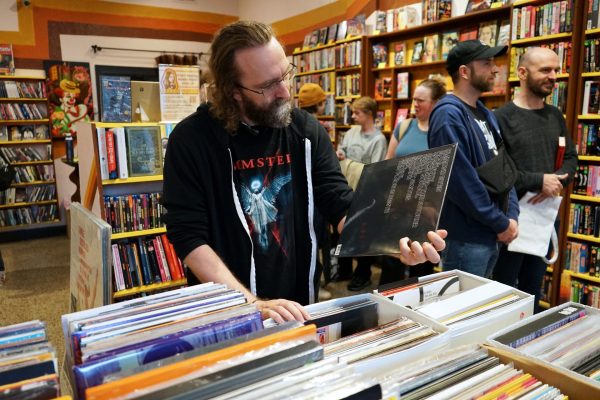TV’s retro resurgence
High waisted pants, velour tops and Winona Ryder all share one thing in common: the 1980s.
Make that two, given that the synthwave decade has found itself revived in the present day. Take a look around a college campus or flip through the channels on television—those whimsical patterns and washed denim jackets are back in business.
It isn’t just the fashion of the ‘80s that’s hitting the streets, it’s the television characters and movies taking over our screens. Eighties cult favorites are rapidly getting reboots and spinoffs. There’s the culmination of “Blade Runner 2049”, “Heathers” being turned into a TV series and “Twin Peaks” making a long-awaited return to Showtime. Nostalgia seems to sell, and that is made obvious with instant hit TV shows “Stranger Things,” set in the 80s, and “Riverdale,” based off of the beloved “Archie Comics.”
The 2000s were expected to be all about the future, so why are we digging into the past? “We continue to create media focused on the nostalgic past because it seems to bring us back to when we were younger,” said Paul Booth, associate professor of Media and Cinema Studies at DePaul University. “It shapes who we think we were.”
For those that were there to experience the ‘80s, these new shows really do fulfill that need to reminisce. “I love remembering the time period of when I was growing up but even more so comparing it to what my kids have now,” said Shannon Kazmierczak, a mother of two young boys. “I feel like there’s an enjoyment of things that occurred when times were simpler and easier.”
Although millennials do not have the memories to take them back to the ‘80s, some still find a connection to the aesthetic and general culture of the decade. “I think we’re in a very similar spot as the Reagan administration,” said Claire Faulkner, a self-proclaimed ‘80s aficionado. “As far as the pop culture aesthetic goes, I believe it is because the ‘80s was such a progressive era in a very specific way that we are experiencing all over again.”
It’s true, the ‘80s produced some of the most androgynous and sexually ambiguous icons of our time. David Bowie, Joan Jett, Debbie Harry, Prince, and Robert Smith all embraced the sexual revolution of their recent decades and set the stage for 2000s pop culture. What was still blossoming in the ‘80s has become, more or less, fully accepted in mainstream media today. This makes it easy for media producers to take the ‘80s aesthetic and merge it with 2000s problems.
“‘Battlestar Galactica’ is a great example, as it not only updated the gender dynamics but also changed the topic to be more relevant to a world dealing with terrorism and emerging Al, things the original series didn’t really deal with,” said Booth.
“We’re seeing things like Black April O’Neil, a transgender Heather, an all-female Ghostbusters, or LGBT Holograms,” said Faulkner.
While it is heartwarming for audiences to see their childhood favorites all grown up or fine-tuned to be dealing with hard-hitting issues, using ‘80s nostalgia to sell an idea treads a fine line.
“In general nostalgia in the media is always false,” said Booth. “The past was never like we remember it, and even less like what the media portrays it as.”
“We are romanticizing the ‘80s for some good reasons, but also over-romanticizing it,” said Faulkner. “The ‘80s still had issues with inclusiveness that needed to be rectified. Things were still pretty bad for women at that time and especially women of color.”
While it is easy for people who lived through the ‘80s to remember what the reality of the times were, it is also easy for millennials to get caught up in the neon aesthetic. Every era has its memorable icons that outshine its rocky history.
So how long do we have to embrace the clunky glasses and silhouettes of the ‘80s? “I feel like every generation goes through an obsession with the past,” said Kazmierczak. “I remember when I was in high school in the late ‘90s and there was a big ‘60s and ‘70s resurgence.”
“‘Happy Days’ was a 1970s version of a nostalgic 1950s. ‘That 70s Show’ was a 1990s version of the 1970s,” said Booth. “Nostalgia has always been an important aspect of media.”
“It’s cyclical in my view,” said Baranowski. “In 10 years or sooner, ‘00s nostalgia will be used.”
Who knows, perhaps the next decade will cop our fashion trends and hairstyles to sell their shows, all the while rectifying the issues we seemed to miss during our own time.


